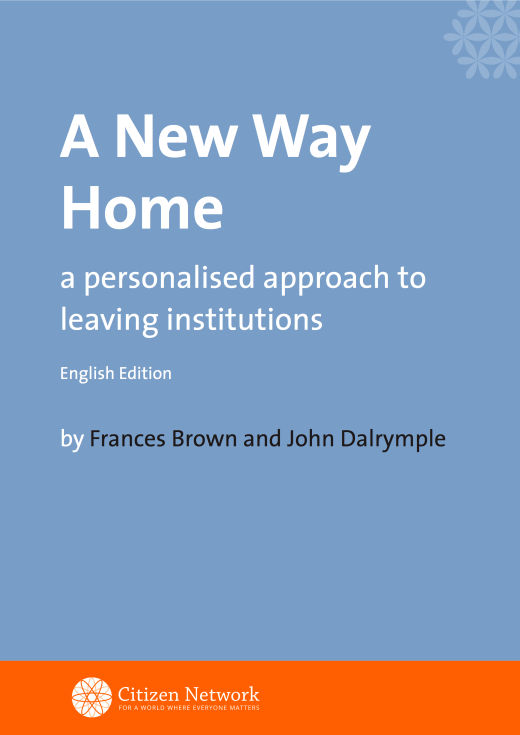Frances Brown and John Dalrymple provide practical guidance on a personalised approach to leaving institutions.
Authors: Frances Brown and John Dalrymple
Officially the UK Government recognises that people with disabilities should not be forced into institutions. However far too many people still remain in institutional care. In particular, many people have been sent hundreds of miles from home and made to live in private hospitals or special units - places that are associated with increased levels of abuse, isolation and oppression.
Even when people do finally manage to leave these special units they are often only allowed to moved into care homes that are still highly institutional. Often it turns out that these new places are also inadequate; it is made far too difficult for people to thrive, form relationships or fulfil their own goals. This failure to respect the individual's real needs, rights and aspirations is at the core of why people end up in institutional care. So this leads to a vicious cycle of poor care and institutionalisation, a cycle which will remain until people are given a better alternative - a new way home.
Fortunately there is a better way. For over 20 years the authors of this guide have been demonstrating that people with disabilities can leave institutions and move directly to their own homes, where they can begin to lead lives of true citizenship. Frances Brown was Director of the ground-breaking Inclusion Glasgow, John Dalrymple not only led hospital closure programmes, but also developed new organisations such as Support for Ordinary Living (SOL) and Neighbourhood Networks. John and Frances were also co-founders of In Control Scotland, championing self-directed support and they have recently established their own agency to promote positive change - Radical Visions.
There is no longer any reason for deinstitutionalisation processes to be so painfully stretched out. The best, the fastest and the most efficient process is the most direct - support people to establish a life of meaning from the beginning - work in partnership with people and families to ensure they have the authority they need to make their own decisions.
The guide is for people, families and for those professionals who seek to work in genuine partnership with them. All the ideas and examples are based on real people and the collaborative work of helping people overcome the barriers that people face as they try to build the lives they deserve.
The Centre for Welfare Reform, part of Citizen Network - the global movement for inclusion - has provided this free guide in the hope that future work on deinstitutionalisation is guided by the principles of human rights and by the goal of ensuring that every single human being can live a life of citizenship - with freedom, meaning and contribution.
Read and download the free pdf in your browser, link below.

The publisher is the Centre for Welfare Reform.
A New Way Home © Frances Brown and John Dalrymple 2017.
All Rights Reserved. No part of this paper may be reproduced in any form without permission from the publisher except for the quotation of brief passages in reviews.
Inclusion, Personalised Support, Self-Directed Support, social care, England, Paper